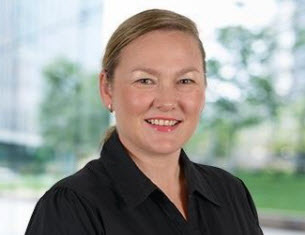Giving Constructive Feedback Training

Duration Half a day – 1 day
Overview
All leaders, managers, project managers and team leaders can benefit from this course.
When shown the right way, a way that is aligned with the right intentions, feedback can lead to outstanding results both for the individual and the team. Employees get to know what they are doing well and not so well, without feeling ‘negative’ or resentful.
Giving feedback is a skill. And like all skills, it takes practice.
In this short and dynamic workshop, you will give both positive and negative feedback in such a way that it encourages the receiver to take suggestions for improvement on board in a positive way and use feedback to learn and grow from.
Being able to give constructive feedback in a way that builds another has many benefits, including bringing out the best in your team and encouraging them to perform well, develop positive relationships and increase trust and communication within the team.
If you are thinking there is no time for this approach, consider that while feedback given quickly without the necessary consideration can save time initially, it will cost tenfold more as low morale and low motivation come to result in a team culture that costs in team performance and results.
Target Audience
This training is highly beneficial for anyone at any level of the organisation. The training will be specifically customised by Glass Rock Solutions for your group of attendees.
Learning Outcomes
- Understand how to observe behaviour to allow you to give quality feedback.
- Learn the difference between feedback based on observation and feedback that is implied and based on assumptions.
- Understand the importance of separating the behaviour from the person and what the value of doing this is, not just for the other but even for you.
- Understand the value of a dialogue within a feedback frame.
- Understand the importance of listening when giving feedback.
- Learn how to facilitate a dialogue where the development and opportunity for growth remains in focus when providing feedback.
- Learn how to facilitate accountability through the feedback process.
- Learn three different ‘feedback structures’.
- Learn how to read if the individual is committed to taking action or if there is resistance to the feedback, explicit and subtle.
- Identify important non-verbal cues to utilise and to avoid.
- Understand and interpret non-verbal cues when giving feedback.
- Identify your likely emotional triggers as part of your preparation for the feedback session facilitation.
- Understand how to stay neutral during a feedback session.
- Receive feedback with a growth mindset.
Book now
Please fill out the form below and someone from our team will be in touch within the next 48 hours to get your training started.
GLASS ROCK CLIENT TESTIMONIALS
GLASS ROCK CLIENT STORIES
WE ARE HERE TO HELP
CONTACT US TO FIND OUT HOW
Melbourne Office
Level 23, Collins Square Tower 5
727 Collins Street,
Melbourne Victoria 3008
Sydney Office
Australia Square, Level 33
264 George Street,
Sydney NSW 2000
We acknowledge the First Australians as the traditional custodians of this continent. We pay our respect to the elders of the community, past, present and future.



